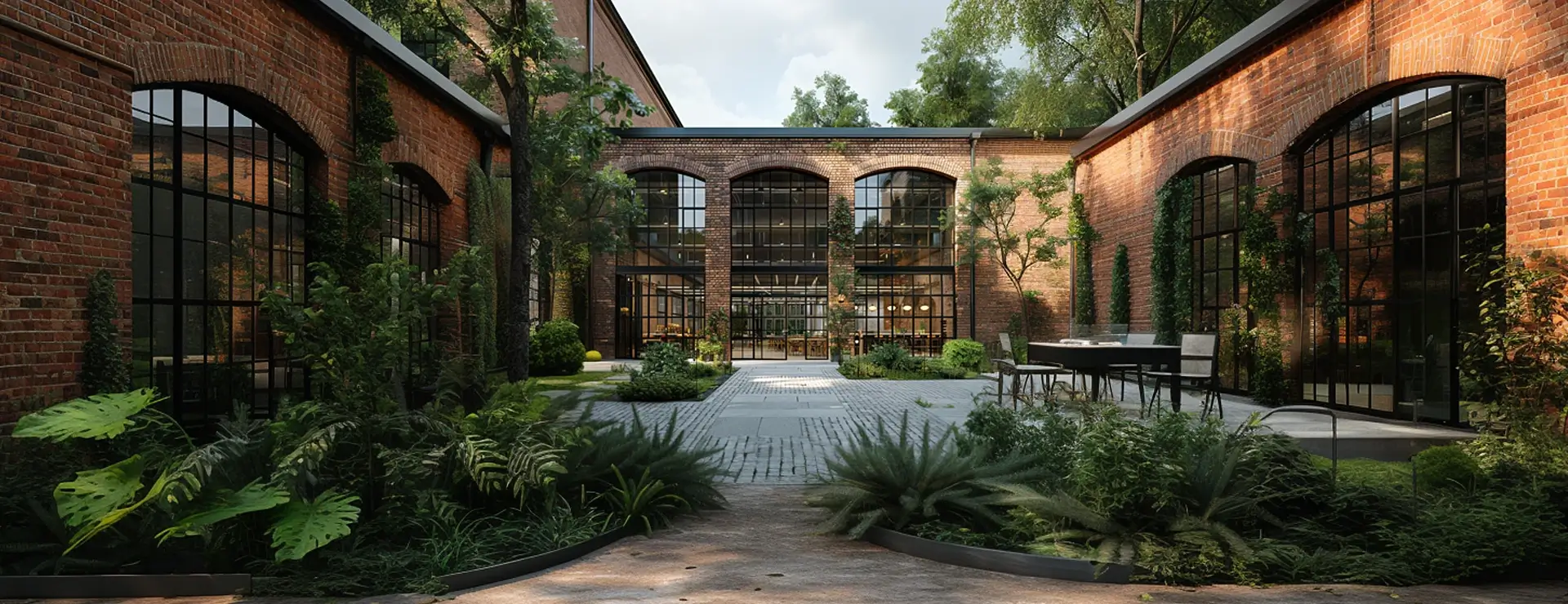

Aluminium windows have become a popular choice in the renovation of historic buildings for several reasons. Firstly, aluminium is an extremely durable material that is resistant to atmospheric conditions such as UV radiation, moisture, and frost. This is why aluminium windows don't require much maintenance, and they last much longer than traditional materials such as wood or PVC.
Moreover, thanks to modern technologies, windows made of this material can be designed in a way that perfectly imitates the original architectural shapes and details, which is extremely important in the context of preserving the authenticity of historic buildings. Even details, such as aluminium window handles, emphasise the style of the entire building. By choosing the appropriate accessories, it is possible to further enhance the functionality of modern windows, at the same time not compromising the historic character of the building.
The renovation of historic buildings also constitutes an excellent opportunity to improve energy efficiency. Aluminium windows offer extraordinary insulation parameters, which leads to a significant decrease in heat loss. It is worth noting, for example, the thermal separators which further increase the insulation of the windows. This not only provides thermal comfort, but also reduces heating costs, which is beneficial for both the wallets of the residents and the environment.
Building renovation with aluminium windows should be carried out in compliance with particular standards and regulations.
Execution of construction works (renovation, redevelopment) on a building or in an area listed in the registry of cultural property requires a permit. Such a permit is issued by a regional cultural property conservator. Only after obtaining the permit can you apply for a construction permit.
In the case of buildings and areas not listed in the registry of cultural property, but included in the municipal inventory of cultural property, a permit for the construction or demolition of a building is issued by the architectural and construction administration authority in agreement with a voivodeship cultural property conservator.
Importantly, the replacement of windows with new models of the same size is classified as a renovation, not a redevelopment. In such a case, neither the technical parameters of the building nor its external appearance are changed, which simplifies the permit procedure.
In both cases, the new windows should be in harmony with the original style of the building. To this end, an accurate architectural analysis of the building must be carried out to understand the unique features and details that define its historic character.
Designers must consider the shape, dimensions and placement of the windows, as well as pay attention to the existing materials and colours that impact the overall aesthetic. At the same time, they must not forget to adapt the solutions to modern needs and standards, in particular those concerning energy efficiency. Indeed, it turns out that buildings are currently responsible for up to 30% of global final energy consumption, which is why choosing the right solutions for renovation is so crucial.
A prepared and complete design plan must be submitted to the regional cultural property conservator responsible for the location of the building.
Once the design has been approved anda positive decision has been issued,it is possible to start the production of the aluminium windows. The modern technology makes it possible to produce them precisely according to predetermined parameters.
Before an aluminium window leavesthe production plant, it is subjected to quality control. The products undergo a number of tests, including to confirm high thermal and acoustic insulation. Some systems are additionally subjected to hurricane or other safety tests.
The next stage is the installation itself. Windows should be installed by professionals, which will ensure their correct operation. An improperly executed installation process may lead to many problems, such as poor sealing, which in turn can result in leaks, heat loss and noise.
Once the window is installed, it should be sealed with high-quality sealing materials, to protect against moisture and drafts, which contributes to the enhanced energy efficiency of the building. The final step is the installation of fittings, such as aluminium hinges and handles, which not only ensure the window's functionality, but also impact their aesthetics.
Aluprofoffers a wide range of aluminium window systems that can be adapted to different properties — including historic building. The right choice of shape, colour, and finish maintains harmony and consistency with the original appearance.
Which systems can perform well in the renovation of historic buildings? The best choices are:
;
Planning to replace windows in a historic building? Choose the highest quality - choose Aluprof!
When ordering awnings, Refleksol Systems or Venetian Blinds, we often have a choice between electric or manual drive.
We often receive questions relating to the colors of lacquering of blinds, Reflexolas, or pergolas. Customers ask whether they will be able to match the color of the system to the color of the windows or the facade of the building.
Sunshades have become an essential part of our homes. They reduce the amount of sunlight entering the interiors, thereby limiting the heating of the rooms and increasing the comfort of the occupants.